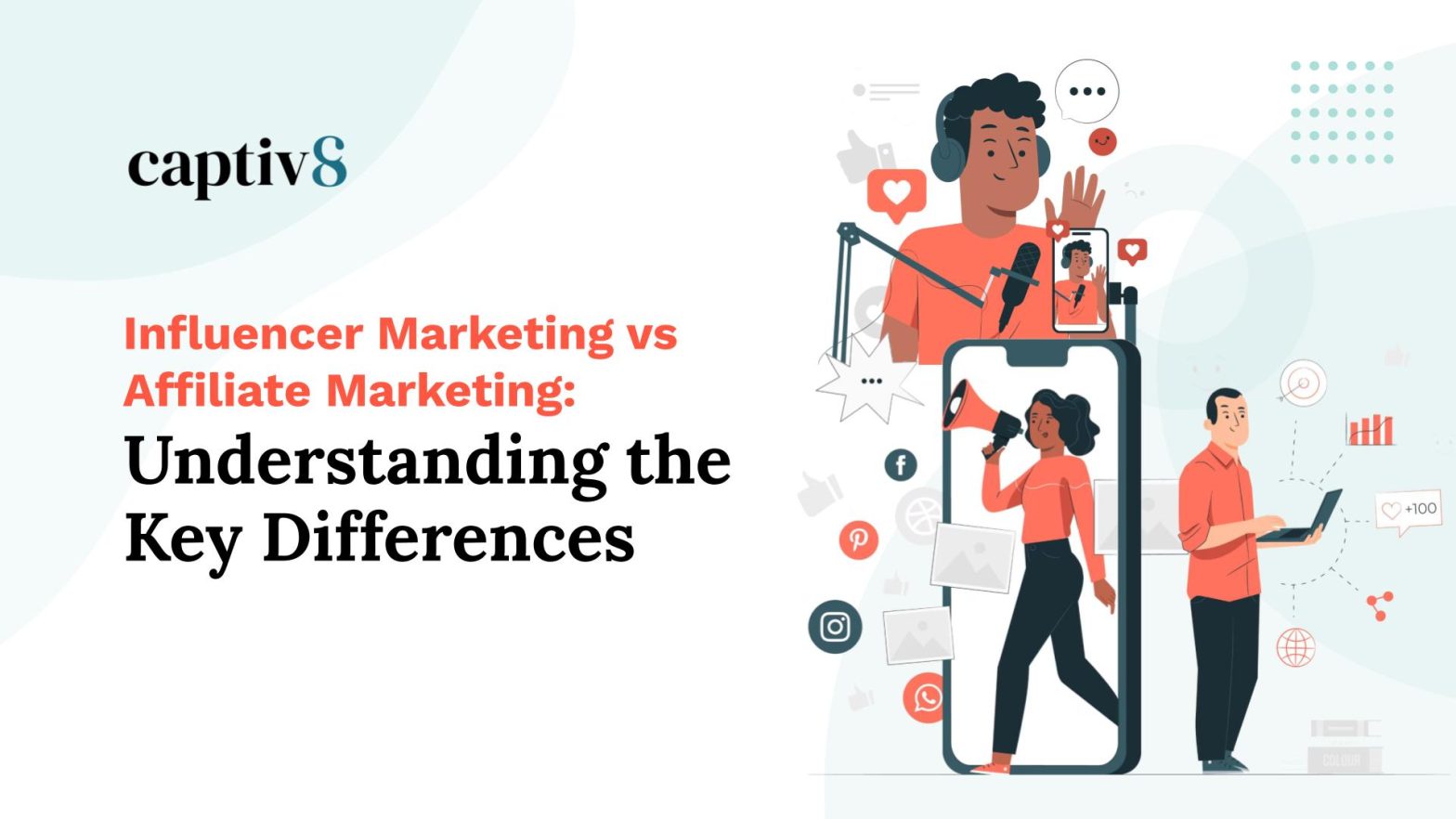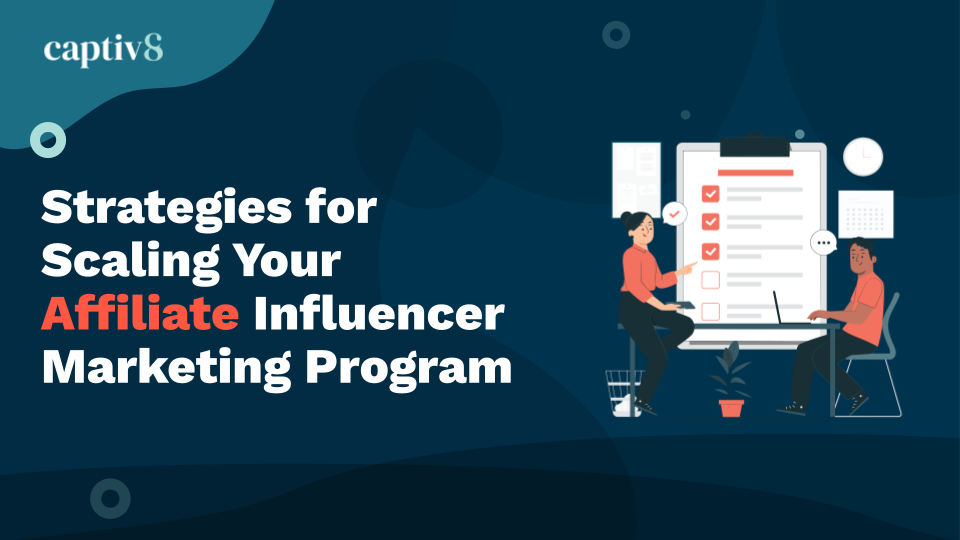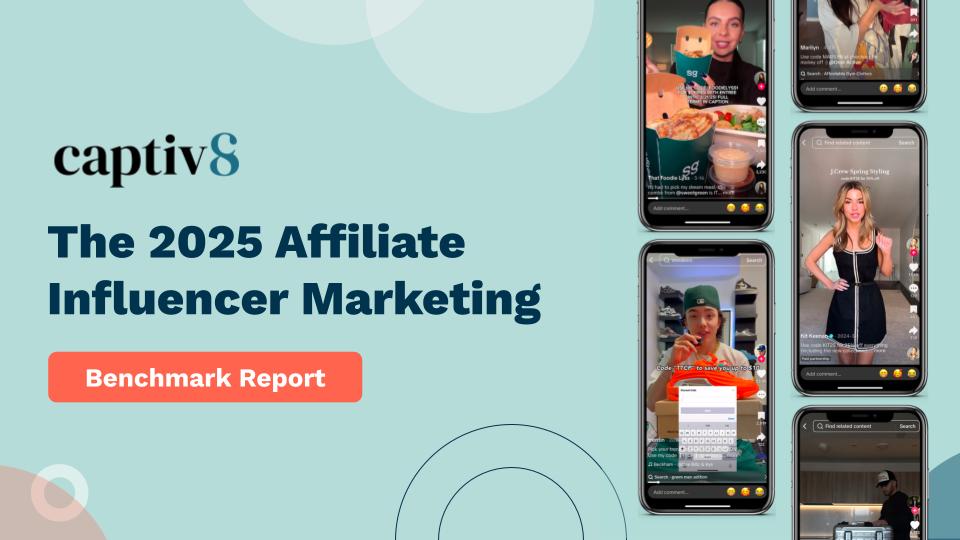Influencer Marketing vs Affiliate Marketing: Understanding the Key Differences

In today’s digital landscape, brands are always seeking new ways to increase visibility, build trust with their audience, and ultimately drive sales. Two marketing strategies that have gained significant traction in recent years are influencer marketing and affiliate marketing. Though they share similarities in leveraging third-party promoters, there are also key differences in their goals, execution, and compensation structures. Let’s uncover influencer marketing vs affiliate marketing.
What is Influencer Marketing?
Influencer marketing involves partnering with content creators who have established a strong online presence and have earned the trust of their audience. These influencers, who can range from micro-influencers to high-profile celebrities, promote a brand’s products or services in exchange for compensation—either a flat fee, products, incentives, or a combination.
Key Features of Influencer Marketing:
- Brand Collaboration: Brands collaborate with influencers to create sponsored content, such as posts, videos, or reviews, that will be shared with the influencer’s audience.
- Fixed Payment: Influencers are generally paid upfront for creating content. Additionally, there may be performance bonuses based on the success of the campaign, similar to the compensation structure of affiliate marketing.
- Brand Awareness Focus: The goal of influencer marketing is often to build awareness, foster engagement, and increase social media visibility. It’s more about creating positive associations with a brand than directly driving conversions.
- Content Revisions: Brands will often provide creators with a degree of creative freedom when it comes to creating content in a style that resonates with their audience. However, brands will often review the content and be able to provide feedback before the content goes live to ensure that key messaging is being delivered.
Pros of Influencer Marketing:
- Broader Exposure: Influencers can introduce your brand to their dedicated and often niche audience, expanding reach. This offers you the opportunity to reach specific target markets.
- Trust and Credibility: Influencers are often seen as trusted figures by their followers, so their endorsement can significantly support your brand’s credibility. The creator’s audience will often feel that the creator has vetted your brand’s product or service before publicly endorsing it and sharing it with their audience, helping bake in a layer of trust.
- Engagement and Social Proof: Influencer content often garners high engagement rates, which can boost your brand’s visibility in social media algorithms.
What is Affiliate Marketing?
Affiliate marketing is a performance-based marketing strategy where individuals (affiliates) promote a brand’s products or services and earn a commission for each sale or lead they generate. Affiliates can also be renowned content creators, as many influencers have partaken in affiliate campaigns from micro-influencers to even high-profile celebrities. Affiliates may use blogs, websites, their social channels, and more to promote the product through unique tracking links or promo codes. These unique tracking links and promo codes help the brand track the attribution of a link click, sale, etc. in order to properly track and pay out these creators based on their performance.
Key Features of Affiliate Marketing:
- Sales-Driven: Affiliates are typically only paid when they generate a sale or lead, meaning compensation is based on the actual performance of their promotional efforts.
- Tracking & Metrics: Each affiliate receives a unique tracking link to monitor clicks, conversions, and sales. Brands track the effectiveness of campaigns through these links.
- Content Volume: Affiliates will potentially create a high volume of affiliate content, pushing out your brand to their audience on a more frequent basis. Given that their compensation is directly tied to their performance, it puts the creator and brand in a win-win situation.
- Long-Term Partnerships: Affiliate marketing often involves building long-term relationships with affiliates, where they continually promote the brand in exchange for ongoing commissions.
Pros of Affiliate Marketing:
- Cost-Effective: Since affiliates are paid based on performance, brands only incur costs when actual sales or leads occur, reducing upfront risks.
- Scalable: With a network of affiliates, brands can scale their efforts without having to manage individual content creation.
- Measurable ROI: Affiliate marketing allows for precise tracking of sales and leads, enabling brands to see exactly what works and optimize their campaigns accordingly.
Key Differences Between Influencer Marketing and Affiliate Marketing
When comparing influencer marketing vs affiliate marketing, both strategies rely on third-party promoters to boost sales or brand awareness, but their goals and execution differ. Here’s a breakdown of the key differences:
| Topic | Influencer Marketing | Affiliate Marketing |
|---|---|---|
| Compensation Model | Usually a fixed payment for content creation, with potential bonuses for performance. | Performance-based, typically ongoing, and transactional. |
| Primary Goal | Goals will vary and include Brand awareness, engagement, and reach. | Direct sales, link clicks, lead generation, and conversions are the most common goals. |
| Content Ownership | Influencers create content in their own style, brands will often review and provide feedback. | Affiliates create content, when executed at scale, brands typically aren’t as hands-on. |
| Relationship Type | Collaborative, often short-term or campaign-based. | Performance-based, typically ongoing, and transactional. |
| Tracking & Metrics | Focus on engagement metrics such as likes, comments, shares, and impressions. | Focus on sales, clicks, conversion rates, and leads generated. |
| Determining What is Right For You | Take all the above into consideration and determine which partnership is the right fit for your brand’s compensation structure, goals, and bandwidth. | Take all the above into consideration and determine which partnership is the right fit for your brand’s compensation structure, goals, and bandwidth. |
Conclusion
Influencer marketing vs affiliate marketing. These two powerful strategies share some similarities but primarily differ in their objectives, methods, and compensation structures. Influencer marketing excels at building brand awareness and trust, while affiliate marketing is a highly effective way to drive sales and generate leads on a performance-based model.
Ultimately, many brands find success in combining both strategies. Influencers can help create the awareness and buzz that drive initial interest, while affiliates can focus on converting that interest into measurable sales.
By understanding the strengths and limitations of both approaches, you can develop a more comprehensive and effective marketing strategy that aligns with your business goals.
About Captiv8
Captiv8 is a full-service influencer marketing solution that redefines end-to-end, inspiring you to think bigger, enabling you to plan smarter, and empowering you to execute better. Additionally, through our intuitive workflow, brands can uncover actionable insights on trends, discover and vet influencers, seamlessly activate campaigns at scale, amplify branded content across the digital ecosystem, and prove business impact through our measurement dashboard. Our platform gives you the tools you need to build relationships and effective content, while our teams lend experiences and strategic services to steer you clear of common influencer marketing pitfalls. Interested in learning more? Take a platform tour today!


![How Brands Can Set Up Influencers for Affiliate Marketing Success [On-Demand Webinar Recording] Affiliate Marketing Strategy](https://captiv8.io/wp-content/uploads/2023/04/230403_captiv8x_affiliate_webinar_banner_v1.jpg)
![From Benchmarks to Best Practices: A Deep Dive into Affiliate Influencer Marketing [On-Demand Webinar Recording] Affiliate Marketing Best Practices](https://captiv8.io/wp-content/uploads/2024/01/231221_captiv8x_affiliate_webinar_banner_image.jpg)